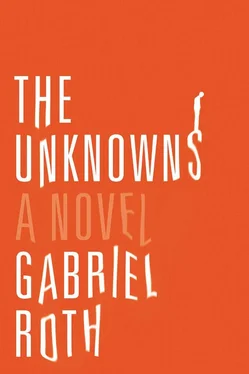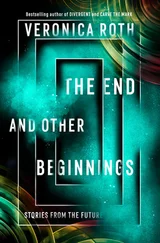“I’ve read the literature,” I say. “It doesn’t resolve anything. That’s why I had to talk to you.”
“Imagine my position,” he says. “I’m charged with proving a negative. I’m sure I made mistakes with her. I had to bring her up alone, and I was out of my depth. But I did not once touch her in a sexual way. My God, to have to make that statement!”
This kind of impassioned denial, true or false, always has the aspect of a performance. “Maya told me about how she remembered it, what it felt like,” I say. “I don’t know how to say this, but… it fit with other things about her childhood, things she remembered all along.”
He stiffens, and I can see how she would have been scared of him. “Those things are post hoc!” he says. He shuts his eyes for a moment in a barely visible effort of self-mastery. “Are there things I would change? Of course there are. Show me a parent who would say otherwise. But this stuff about molestation, about abuse — this is pure revisionism! Her childhood wasn’t always easy, but it was entirely innocent of that !” After everything I’ve felt for him over the past half hour — the way he spoke to me about technology, about art, about money; the way he showed me his despair — I don’t like disappointing him.
“How did you know who I was?” I say.
“Daphne’s sister Gail,” he says. Everything is always more complicated than it seems. We face each other in silence among the bronze and marble.
“Tell me what it was like,” I say. “When she was a kid.”
He looks at me gratefully, and I realize I’ve made a terrible mistake: I will have Donald’s image of his daughter superimposed on my eyes every time I look at her.
Watching Maya grow up was a daily heartbreak for Donald, because what she was growing up into was her mother: the same small features, the same fine dark hair and slender shoulders, the same intelligence and self-possession. The toughness that I thought had been cultivated to protect her from his depredations was present, apparently, in the twenty-year-old Barnard junior with whom Donald fell overwhelmingly in love as a graduate student at Columbia. Their marriage wasn’t always easy—“I’m not an easy man to be married to,” he says — but he’d wanted an intellectual equal for a wife, and he’d found one. “You must be the same way,” he says.
Maya’s birth forced him to reevaluate his ideas about himself. “My parents were not loving people,” he says. “I don’t think I had a template for parental affection. And then the moment she was born I was swallowed up by this child, by this astonishing surge of love I felt for her. I didn’t understand what was happening.”
Four years later he’d almost found his balance when everything collapsed. They were trying for another child, and Daphne had failed to conceive after a year and a half. The CT scan found something growing inside her, not a baby but a tumor. For a year the cancer and the chemotherapy fought like hyenas over her body, and at the end there was nothing left of Donald’s wife but the wisp of a corpse and the six-year-old who seemed to have stepped out of photographs from her mother’s childhood. For weeks Donald couldn’t look at his daughter without crying.
When he began to emerge from his mourning he promised himself that Maya wouldn’t be starved for attention. He left his job at the Getty and went into business as a dealer so he could set his own schedule, collect her from school, attend plays and soccer games (although Maya turned out to be uninterested in organized events; she preferred forming secret clubs with her friends). He worried about losing his salary, but Daphne’s parents helped, and then he turned out to have a knack for buying and selling that might have gone undiscovered had he remained at the museum spending other people’s money. So he picked her up from school every afternoon, and they ate dinner together every night, and he helped her with her schoolwork in the evenings. When she turned thirteen and began reading real books in English class, he would read them too and discuss them with her at dinner. Every summer they went to Europe; by the time she was sixteen she’d seen the Uffizi, the Musée d’Orsay, and the Sagrada Familia, and how many of her classmates could say that?
Between Daphne’s death and Maya’s desertion he had only one real relationship with a woman. He couldn’t tolerate dates; sooner or later he always developed a passionate loathing for the anxious divorcee sitting opposite him in the restaurant. They fell into two categories: the ones who tried to be what they imagined he was looking for, who treated every question as a test with a correct answer, and the ones who made a show of being themselves, who got boozy and loud and, when he declined their invitation to come inside for a nightcap, mean. He gave one of them a try, for Maya’s sake mostly. Donald and Valerie were together for almost two years, and the three of them went away for the weekend a few times, and to Italy once. Valerie and Maya got along fine, but in her presence Maya became polite: cheerful and courteous and well hidden. Remarkable that she knew how to do that at thirteen.
She decided to go to college back east. Donald made a pro forma case for UCLA but he was proud that she wanted to go off on her own, to make good on the independence that had been forced on her twelve years earlier. He tended to look down on the intellectual culture of his adopted state. They’d moved there for him to take the Getty job, a good job for a young man, and to be closer to Daphne’s parents in Pasadena. He imagined Maya would stay on the east coast, in Boston or New York, and eventually he’d move back as well, relocate the gallery or accept a position at the MFA or the Frick. He’d take her to the theater or the ‘21’ Club, treats she couldn’t afford for herself, and he’d give a toast at her wedding and make her cry.
The first weeks of her freshman year they talked every Sunday and often more. She described her classes, her professors, her friends. There was already a new reserve about her, but he understood that she was surrounded by excitement of all kinds, intellectual and political and social — he remembered it from his own college days — and keeping her father in the loop wasn’t a priority. He planned a trip to New York, although it wasn’t wholly necessary, so that he could come up to Concord and take her out to dinner and get a look at the daughter who had somehow reached adulthood with no parent but him.
The dinner was awkward. He asked about her classes, and she answered in that maddening polite way he’d seen her use on Valerie, as though everything he was asking was beside the point. She became animated only when discussing trivial things, parties and friends and the details of communal living. She threatened to major in something called cultural studies. He didn’t recognize this blithe girl, so unserious about herself. The roommate, a real bimbo, didn’t help. Back in his hotel room afterward he worried that Ward was the wrong choice, that he should have pushed her to go somewhere more rigorous. He reminded himself that she had never acted out during her adolescence. He had allowed her to set her own hours, to stay at friends’ houses as she pleased, to keep her social life largely hidden from him, and she had repaid him by graduating near the top of her class. Here, finally, was her teenage rebellion, a few years late but appropriate, even necessary. He chose to interpret it as an act of generosity that she had waited until she was out of the house before it began.
They didn’t talk much for the rest of the semester. He tried to take it in stride. He allowed her to spend Christmas vacation with her friend in Boston, summer in the Middle East. She was, after all, an adult.
Читать дальше












